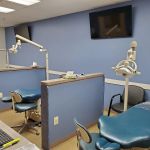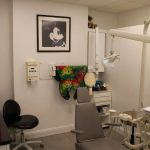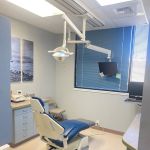How Sleep Apnea Treatment Improves Mental Health: The Connection You Need to Know
- Understanding Sleep Apnea
- The Mental Health Impacts of Sleep Apnea
- How Sleep Apnea Treatment Improves Mental Health
- Real-Life Cases of Improved Mental Health Post Treatment
- Additional Benefits of Sleep Apnea Treatment
- How to Start Sleep Apnea Treatment
Understanding Sleep Apnea
Sleep apnea is a serious medical condition where your breathing repeatedly stops and starts during sleep. This can lead to fragmented sleep patterns and low oxygen levels in the blood. There are two main types: obstructive sleep apnea (OSA) and central sleep apnea. Obstructive sleep apnea occurs when the throat muscles relax excessively, while central sleep apnea is related to the brain’s failure to signal the muscles to breathe.
Regardless of the type, sleep apnea can significantly disrupt a person’s sleep, often leading to excessive daytime sleepiness and other health issues. Left untreated, sleep apnea can have serious consequences on both physical and mental health.
The Mental Health Impacts of Sleep Apnea
Sleep apnea not only affects your physical health but also has a profound impact on your mental health. The constant disruption in sleep patterns can lead to mood swings, irritability, and a lack of focus. In some cases, untreated sleep apnea is linked to conditions like depression, anxiety, and even cognitive decline.
People with sleep apnea often report feeling mentally fatigued and find it hard to concentrate during the day. This can severely affect personal relationships, work performance, and overall quality of life. Over time, the negative effects on mental health can become more pronounced, leading to a vicious cycle of poor sleep and worsened mental well-being.
How Sleep Apnea Treatment Improves Mental Health
One of the most effective ways to combat the mental health impacts of sleep apnea is through proper treatment. Treatment options like Continuous Positive Airway Pressure (CPAP) therapy, lifestyle changes, and surgery help manage the condition and restore normal sleep patterns. The benefits of treating sleep apnea extend far beyond improved breathing – mental health also significantly improves.
Studies have shown that people who consistently use CPAP therapy or other treatments report better sleep quality, improved mood, and reduced anxiety. By stabilizing sleep and ensuring more oxygen reaches the brain, sleep apnea treatment can reduce feelings of irritability and fatigue, ultimately fostering a more balanced and positive mental state.
Real-Life Cases of Improved Mental Health Post Treatment
Many individuals have shared their stories of how sleep apnea treatment positively impacted their mental health. One case involved a patient suffering from severe depression and anxiety due to untreated sleep apnea. After starting CPAP therapy, the patient reported feeling less anxious and noticed significant improvement in mood and cognitive function. This story illustrates the profound connection between sleep and mental well-being.
Another individual, a working professional with chronic fatigue, found that after addressing their sleep apnea, they were able to focus better at work, manage stress more effectively, and enjoy a healthier social life. These real-world examples highlight the importance of sleep apnea treatment in not only improving physical health but also significantly enhancing mental health.
Additional Benefits of Sleep Apnea Treatment
The mental health benefits of sleep apnea treatment are just the beginning. Addressing sleep apnea can also improve overall physical health by reducing the risk of heart disease, stroke, high blood pressure, and diabetes. Better sleep quality leads to more energy, better immune function, and improved productivity. These positive outcomes can lead to a greater sense of well-being and a more fulfilling life.
Furthermore, successful treatment of sleep apnea may enhance one’s relationships, as improved mood and mental clarity often lead to stronger social connections and better communication with loved ones.
How to Start Sleep Apnea Treatment
If you suspect you have sleep apnea, the first step is to consult with a healthcare provider or a sleep specialist. They can conduct tests such as a sleep study (polysomnography) to diagnose your condition accurately. Based on the results, they can recommend an appropriate treatment plan that could include CPAP therapy, lifestyle changes like weight loss, or even surgery in more severe cases.
Early diagnosis and treatment of sleep apnea are key to preventing the mental and physical health consequences associated with the condition. For more information about sleep apnea treatment and its benefits, visit Dentistry Toothtruth.







 Children's Dental Health of Downingtown4.0 (658 review)
Children's Dental Health of Downingtown4.0 (658 review) Pasternack Pediatric Dental4.0 (40 review)
Pasternack Pediatric Dental4.0 (40 review) Lightfoot Center for Laser Periodontics5.0 (69 review)
Lightfoot Center for Laser Periodontics5.0 (69 review) Rainier Dental4.0 (198 review)
Rainier Dental4.0 (198 review) Crown Point Dental Care4.0 (453 review)
Crown Point Dental Care4.0 (453 review) Red Oak Dentistry: Dr. Michael King4.0 (74 review)
Red Oak Dentistry: Dr. Michael King4.0 (74 review) The Importance of Oral Health Education During Pregnancy for a Healthy Pregnancy
The Importance of Oral Health Education During Pregnancy for a Healthy Pregnancy Best Tips for Brushing Your Teeth Properly for Healthy Gums: Essential Techniques for Oral Health
Best Tips for Brushing Your Teeth Properly for Healthy Gums: Essential Techniques for Oral Health Why Skipping Dental Checkups Can Lead to Bigger Oral Health Problems
Why Skipping Dental Checkups Can Lead to Bigger Oral Health Problems Advantages of Porcelain Dental Restorations
Advantages of Porcelain Dental Restorations How Can Diabetes Cause Tooth and Gum Problems? Preventing and Managing Oral Health Issues
How Can Diabetes Cause Tooth and Gum Problems? Preventing and Managing Oral Health Issues Healthy Habits for Promoting Good Oral Health and Hygiene: Tips for a Healthy Smile
Healthy Habits for Promoting Good Oral Health and Hygiene: Tips for a Healthy Smile